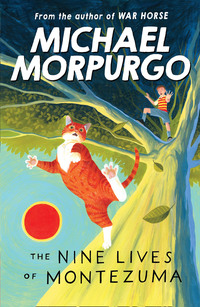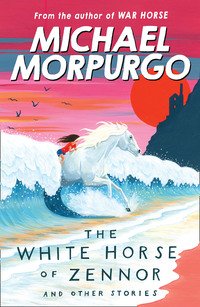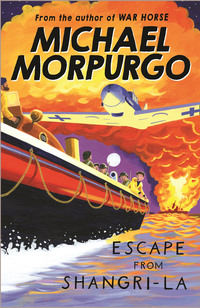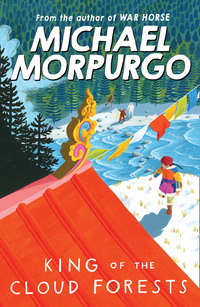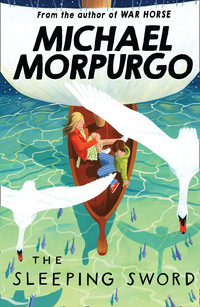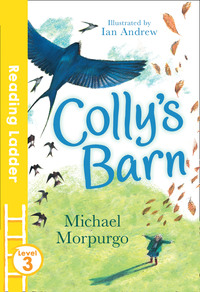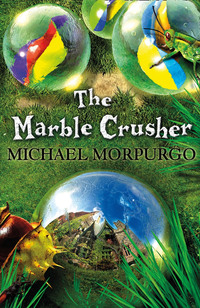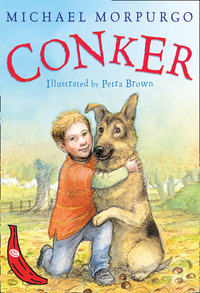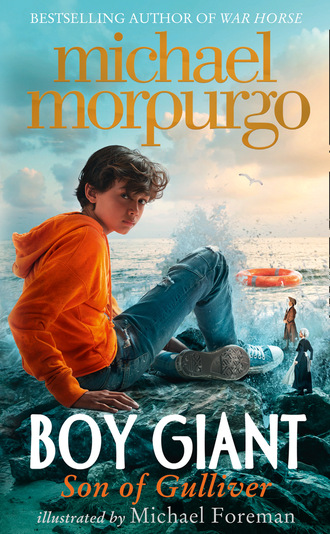
Полная версия
Boy Giant

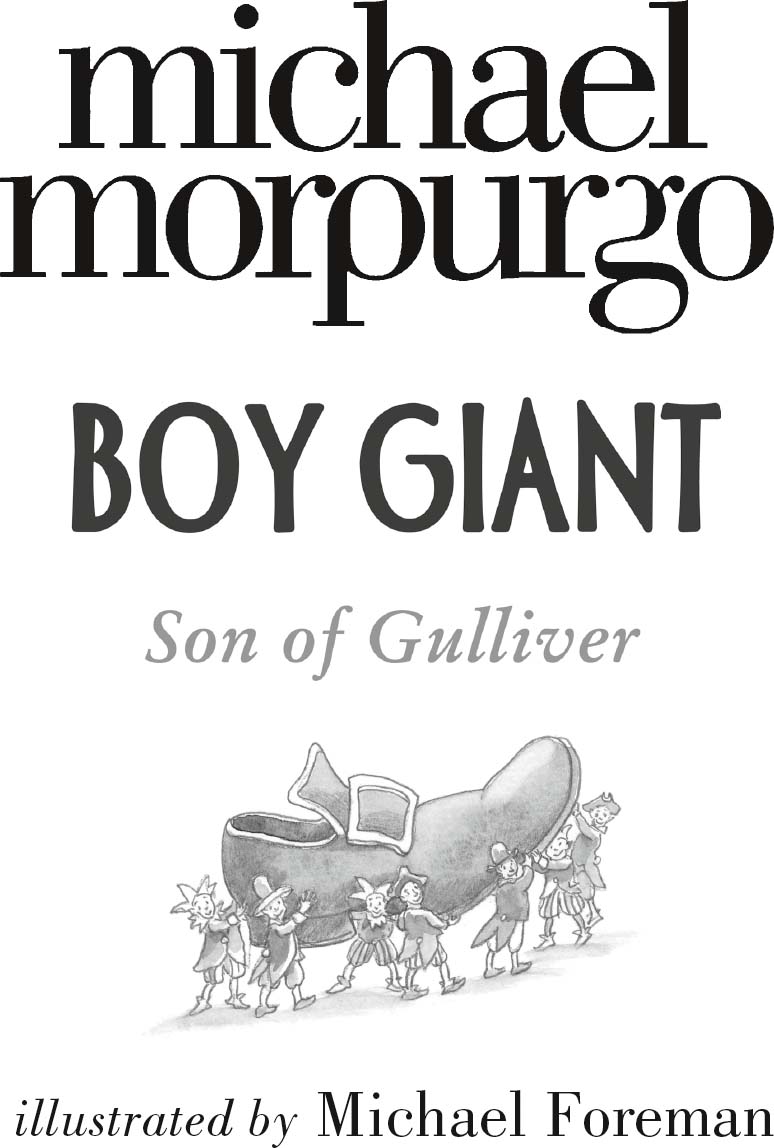

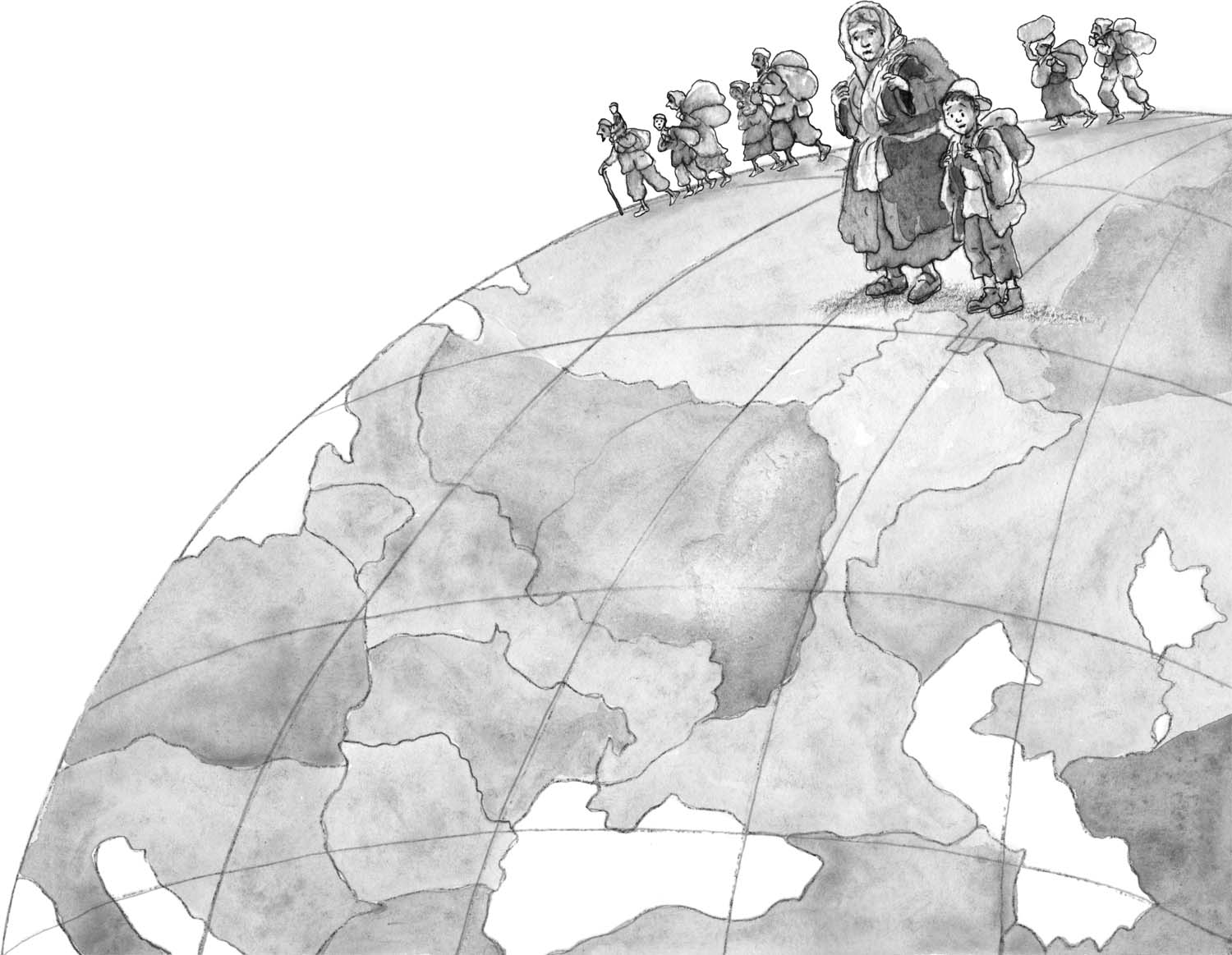
First published in Great Britain by HarperCollins Children’s Books in 2019
Published in this ebook edition in 2019
HarperCollins Children’s Books is a division of HarperCollinsPublishers Ltd,
HarperCollins Publishers
1 London Bridge Street
London SE1 9GF
The HarperCollins Children’s Books website address is
www.harpercollins.co.uk
Text copyright © Michael Morpurgo 2019
Cover design copyright © HarperCollinsPublishers Ltd 2019
Illustrations copyright © Michael Foreman 2019
Michael Morpurgo and Michael Foreman assert the moral right to be identified as the author and illustrator of the work respectively.
A catalogue record for this book is available from the British Library.
All rights reserved under International and Pan-American Copyright Conventions. By payment of the required fees, you have been granted the non-exclusive, non-transferable right to access and read the text of this ebook onscreen. No part of this text may be reproduced, transmitted, downloaded, decompiled, reverse engineered, or stored in or introduced into any information storage and retrieval system, in any form or by any means, whether electronic or mechanical, now known or hereinafter invented, without the express written permission of HarperCollins.
Source ISBN: 9780008347918
Ebook Edition © September 2019 ISBN: 9780008347932
Version: 2019-08-20
For Tom and Kate,
and for Hannah, Jack and Zoe.
M.M.

To my big brothers,
Ivan and Pud,
giants of my boyhood.
M.F.
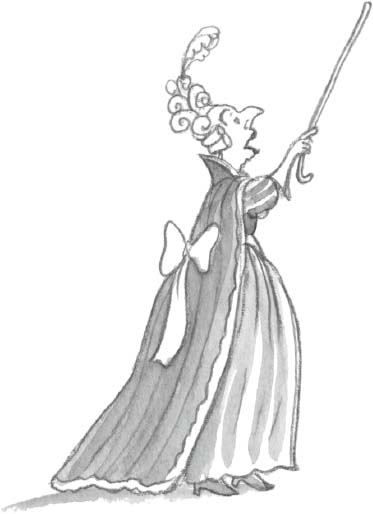
With thanks to Jonathan Swift, author of the great
Gulliver’s Travels, published on 28 October 1726.
Thanks also to Clare, Michael Foreman, Vicki
Berwick, Nick Lake and Ann-Janine Murtagh for
their help in making this book happen.
And also my thanks to Sarah Outen, ocean rower
extraordinaire, and an inspiration to us all.

‘Be not inhospitable to strangers lest they be angels in disguise’
George Whitman
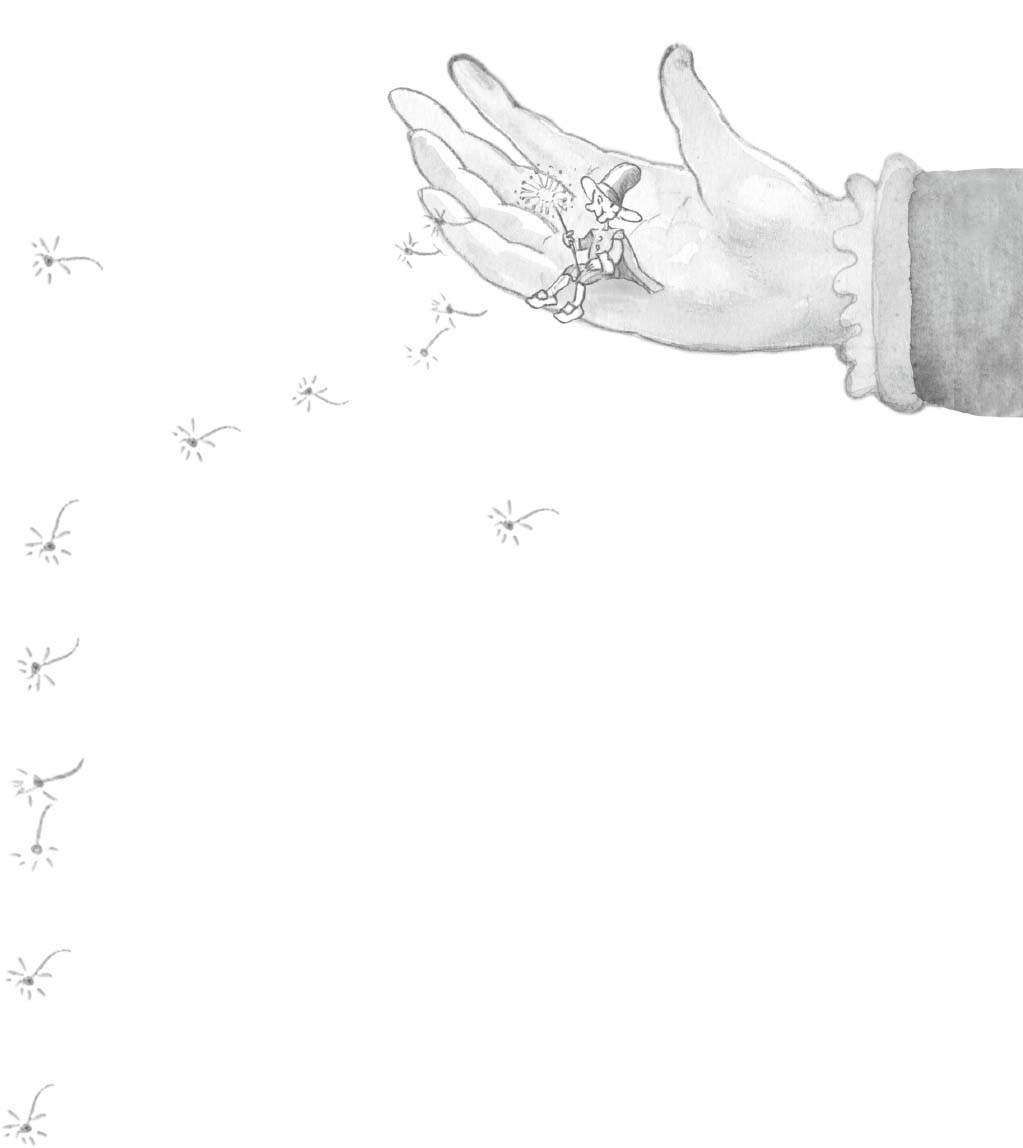
CONTENTS
Cover
Title Page
Copyright
Dedication
Epigraph
First Part
1. Tiny, They Called Me
2. Fore Street, Mevagissey
3. Something to Cling On To
4. The Little People
5. Me, a Mountain!
6. Son of Gulliver
7. The Whole World
8. Gran Baruta
Second Part
9. Where Was I?
10. Thank You
11. Zaya and Natoban
12. Dark Clouds
13. A Tree to Climb On
14. Talking to Mother
Third Part
15. Round End Good. Sharp End Bad
16. The Wrecking of the Warships
17. The Eggy Part
18. How to Crack an Egg, Peacefully
Fourth Part
19. Blufescu
20. Bronar the Tyrant
21. Come What May
22. No More Tyrants!
23. Be There, Please, Mother
24. I Am Coming, Mother
25. Homeward Bound
26. So Here We Are
27. Yellow as the Sun
Fifth Part
28. Anything But Ordinary
29. Your Home Too
30. Not Like Lilliput
31. You’re That Girl, Aren’t You?
32. A Safe Place
33. A Proper Home
Keep Reading …
Also by Michael Morpurgo
About the Publisher
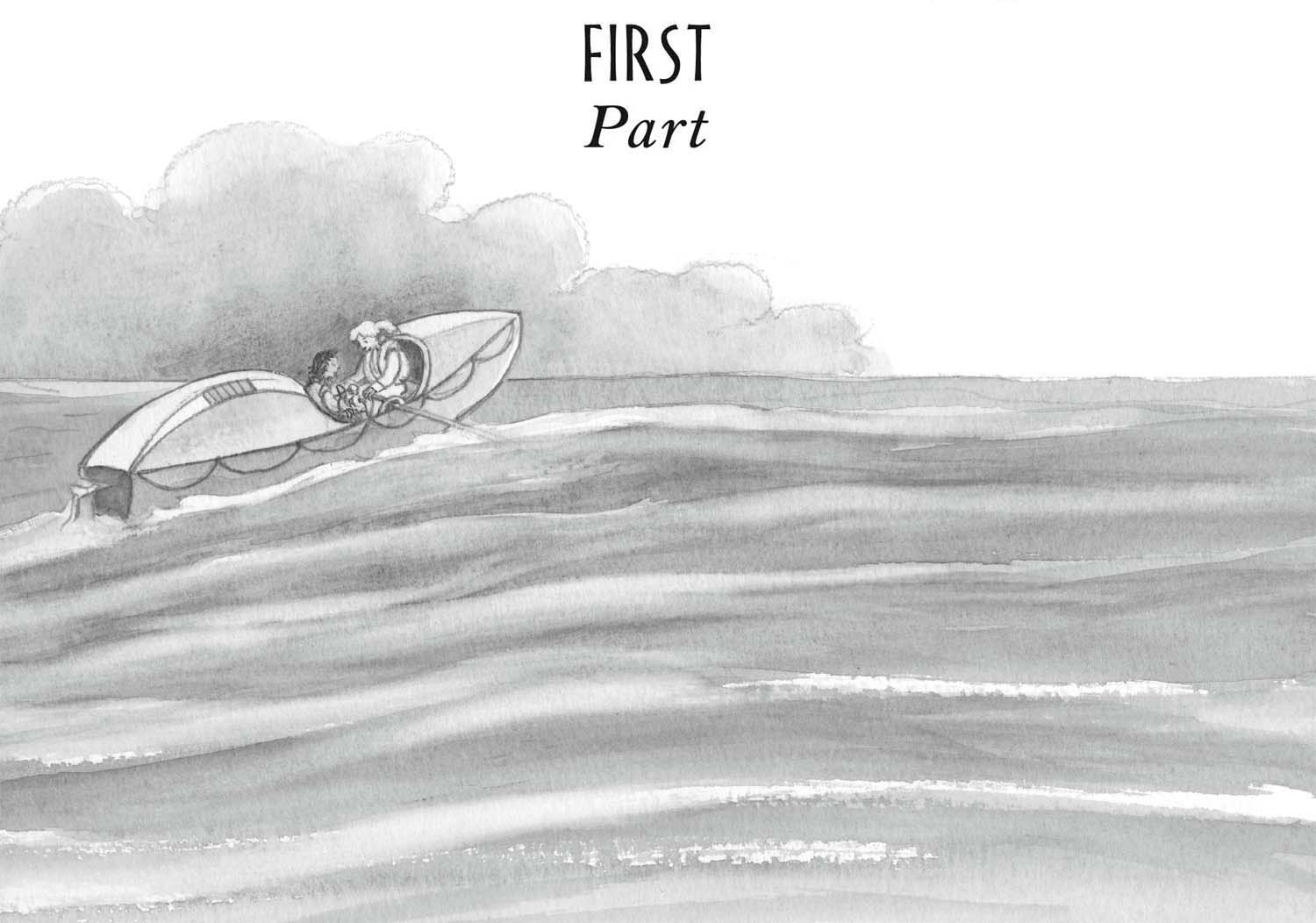
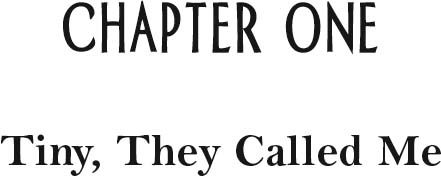
All we knew about her was that she called herself J.J., that she spoke English, that she was alone out there in her big yellow rowing boat and that she was like a giant to all three of us – even me – a giant with a bandaged wrist and plasters on her fingers.
‘So tell me,’ she said, ‘tell me everything.’
I could hardly refuse, could I? I mean, this J.J. had saved our lives. It was thanks only to this stranger that we were dry again, well fed, warm and rested.
‘I mean,’ she went on, ‘I want to know how it is that you’re out here on the open ocean in such a small boat. Who are you? Where have you come from?’
I could have asked her much the same questions. But I found myself telling her our whole story. I was happy to tell her too, not just because she had shown us such kindness, but because once I began telling her our story out loud, it somehow helped me to believe it had all really happened to me, helped me to remember who I was, who I had become. That she would believe me I had no doubt. After all, she had the evidence right in front of her. She could hardly take her eyes off the evidence. The three of us were there to prove it. We were the truth of our own story.
I began at the beginning, because without the beginning none of it would have made sense to her; and anyway, none of it would ever have happened. I would never have had to leave home, and my life would have been another story altogether.
‘It’s quite a long story,’ I told her.
‘That’s fine,’ she said. ‘I need to rest this wrist anyway. Can’t row far like this.’
So I began.
Where I come from is no longer my home. There was a house and a village I once called my home, in Afghanistan. I had a family of my own once. Not any more. I have my name – Omar – and I have Mother, but I don’t know where she is. I think and I hope she may be in England with Uncle Said. I was on my way to find her. That’s why we were out here on our little boat when you found us, and we found you.
I don’t know any more what day or month or year it is, but I think I must now be about sixteen years old. Of my beginnings, of my home, there is not much to tell, and I do not like to speak of it or think of it, because it makes me sad to remember. My home was a quiet place, in a peaceful town in the countryside. We lived on the edge of town. My father was a shepherd, our flock was our livelihood. We never went hungry or thirsty. I had a little sister, Hanan. She and I were much loved in our home. We were together. We were all happy.
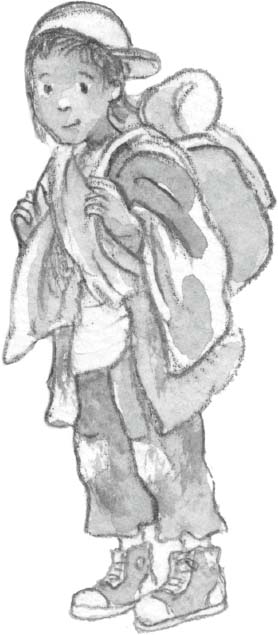
School was school. All my friends were there. We learnt our lessons, played together. But I was always small and thin, and at school I was never allowed to forget it. ‘Tiny’, they called me. Little I may have been, but I was by far the best at cricket. No one hit the ball harder. No one bowled faster. The pitch was always bumpy, but it was the same for us all, and it was fine. Everything was fine. I could read the bounce of every ball they bowled at me, see it on to the bat. I lived for my cricket, and my family. Everything was good – well, mostly.

Every night I went to sleep wishing I would score more runs the next day or take more wickets, and I prayed I would be a little taller in the morning. I would measure myself against the mark Mother had made on the wall. The next day I would often score more runs, or take more wickets, or both, but I was never any taller. Hanan was still taller than me every morning and she was two years younger than me.
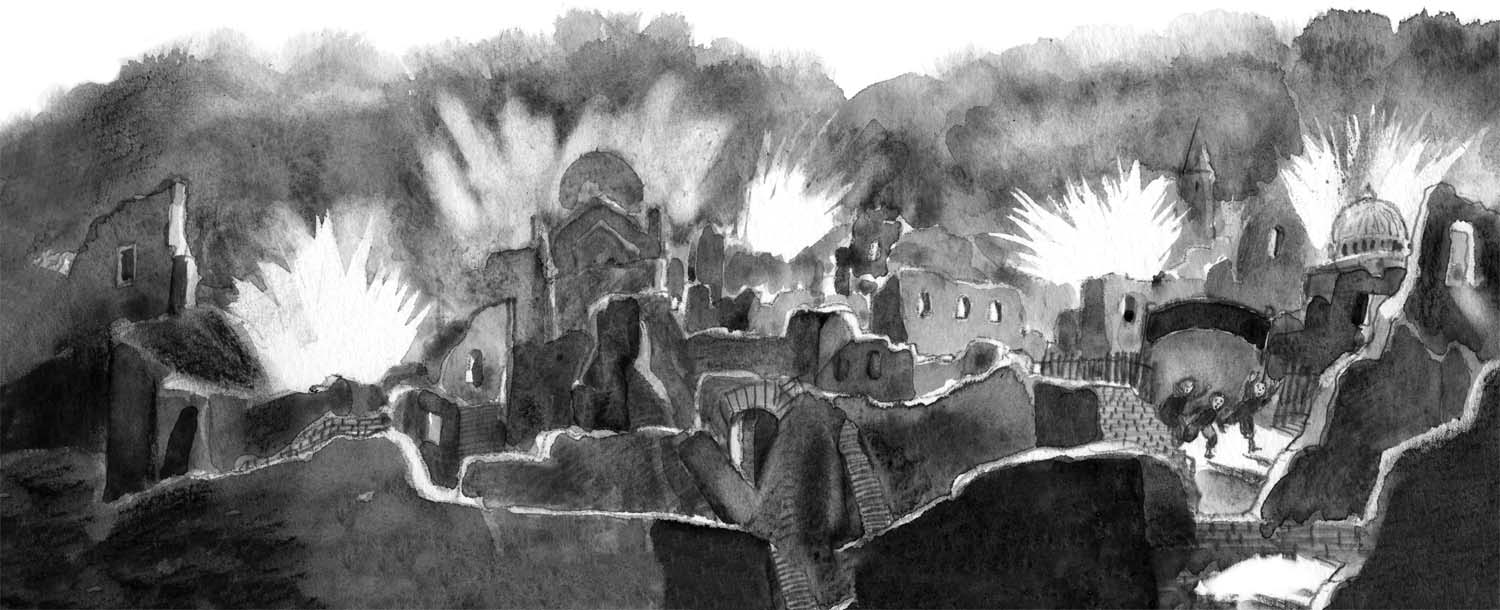
Then the war came to our town and I had other worries, more serious worries. I do not know to this day why the war came. It was on the morning of my tenth birthday, I remember. We heard the planes in the sky, and then the bombing began. We were in school. There was nowhere to hide, nowhere to run to. At the end of that day our home was in ruins, our school too. Many of my friends had died. I was there when they were buried. I helped to bury them. Father died too, when the planes came again the next morning, and so did most of our sheep. Then we discovered Hanan was missing. We looked and we called, but we never found her. Only Mother and I were left. We had nothing, no shelter, no food, no father, no sister, no daughter.
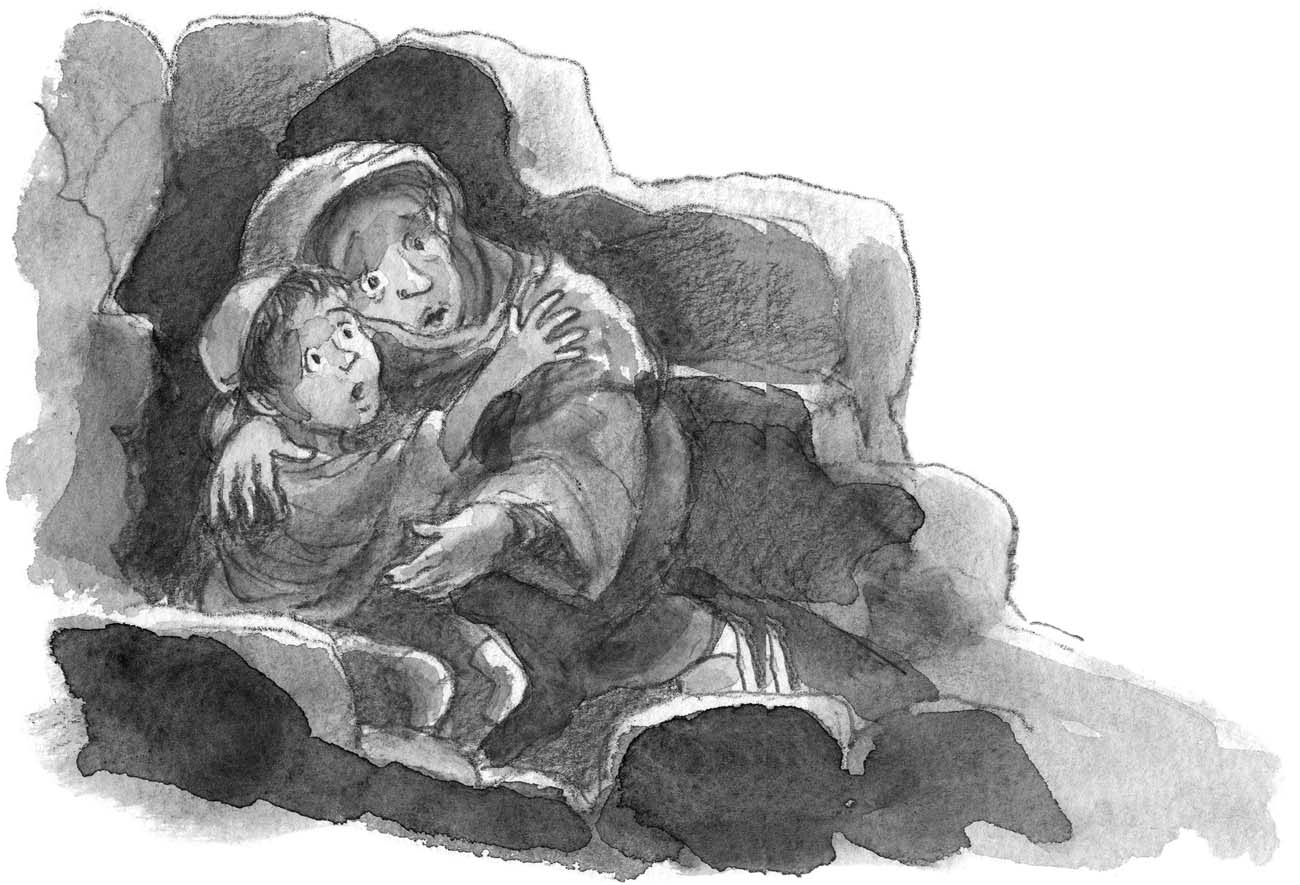
The aid workers came after that, and they brought us food and tents, and built us a refugee camp. We weren’t a family any more. We were refugees. We lived in that camp a long time. The aid workers were from England, and they were kind to us. They smiled at us, and we liked that. It cheered our hearts. There were doctors and nurses, who were good to us. It was cold through that winter, but we survived. The refugee camp was never a home for us. It was a place of shelter – that’s all. Sometimes we played football and cricket with the aid workers, and they taught me to speak a little English. They were amazed at how good I was at cricket. I liked to amaze them. It made them smile.
But then one day Mother said it was not safe for us to stay, that she was sure the planes would come again, or the soldiers. Many in the camp had decided to leave, and we would go with them.
So Mother and I, and a few others, we left the camp in the middle of the night and began to walk. We walked for weeks and weeks. We walked over the mountains, through the desert, followed where others went, all of us with only one thing on our minds. To find somewhere far away from the war, anywhere, that was a place of peace where there was food and water and shelter, where we could be safe. How long and how far we walked I do not know.

Sleep was our only comfort. You can forget when you are asleep. Waking up was the worst part of every day. I wanted only to stay where I was, curled up on the ground, and never get up again. I was so tired, too tired to care any more.
Mother saved my life every morning. She would never let me lie there. She always said that if I didn’t get up, and walk on, I would die, and she wasn’t going to let that happen. She would tell me sometimes that she could smell the sea, that I had to be strong and brave, like Father and Hanan had been. She promised me that beside the sea there would be a boat waiting for us, to carry us to safety, to a new life in a new home where there would be lots of smiling people like the aid workers and doctors and nurses in the camp, and where there was no more war and no bombing. All I had to do, Mother said, was to put one foot in front of the other. Her love and her promises were all that kept me walking.
There were wire fences, there were lorries, there were trains, there were more refugee camps. The police beat us. There were people who yelled at us to go home, others who took us in and fed us and gave us warm clothes, and smiled at us. We never knew what to expect.
But Mother and me, we put one foot in front of the other, and we walked.
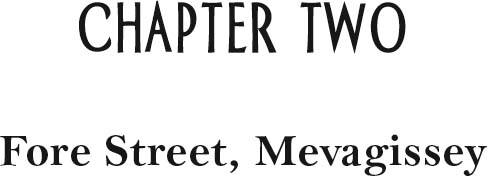
Sure enough, after a year or more of wandering, one day we came over a hill, and there – just as Mother had promised – was the sea, and some houses and people, and, like a miracle, there was the boat waiting for us. Mother told me, her arm around me, that God was good to us, and that I should always believe that.
She had little enough left to sell, the bracelets on her arms, the rings on her fingers. They were enough to pay the men to allow me on to their boat, but not Mother. None of her tears, nor mine, were enough to persuade them to let her go with me.
I had to go on alone, she told me. She would follow on later. We would find one another in England. She promised me faithfully. And Mother always keeps her promises.
I remember her last words to me. ‘Go to your Uncle Said in his café in Mevagissey,’ she told me. ‘Fore Street. Mevagissey. Remember, Fore Street. Remember, Mevagissey. Say it over and over in your head, Omar, so that you do not ever forget. Fore Street, Mevagissey. Fore Street, Mevagissey. Wait for me there. I will come. Go now, Omar. Say to the people in England that you are his nephew, and they will let you stay. Uncle Said told me they would do this. Tell them where he lives, where he works in his café. They will let you stay with him. Do not worry. They will have smiling eyes, and there is no war there either. This way you will live, and if you live, so will I. We will meet again, we will, God willing.’
I clung to her. I cried into her.
She whispered in my ear that she loved me more than life itself, but I had to be a man now like Father had been, that I had to be brave like Hanan, that I was to go and cry no more. ‘Smile for me,’ she said, ‘so I will remember you this way.’ I tried, tried so hard, but I did not succeed. My tears would not let me.
The last time I saw Mother she was standing there on the shore watching the boat take me away. She was becoming smaller before my eyes. Soon she was not there at all, and then nor was the shore.
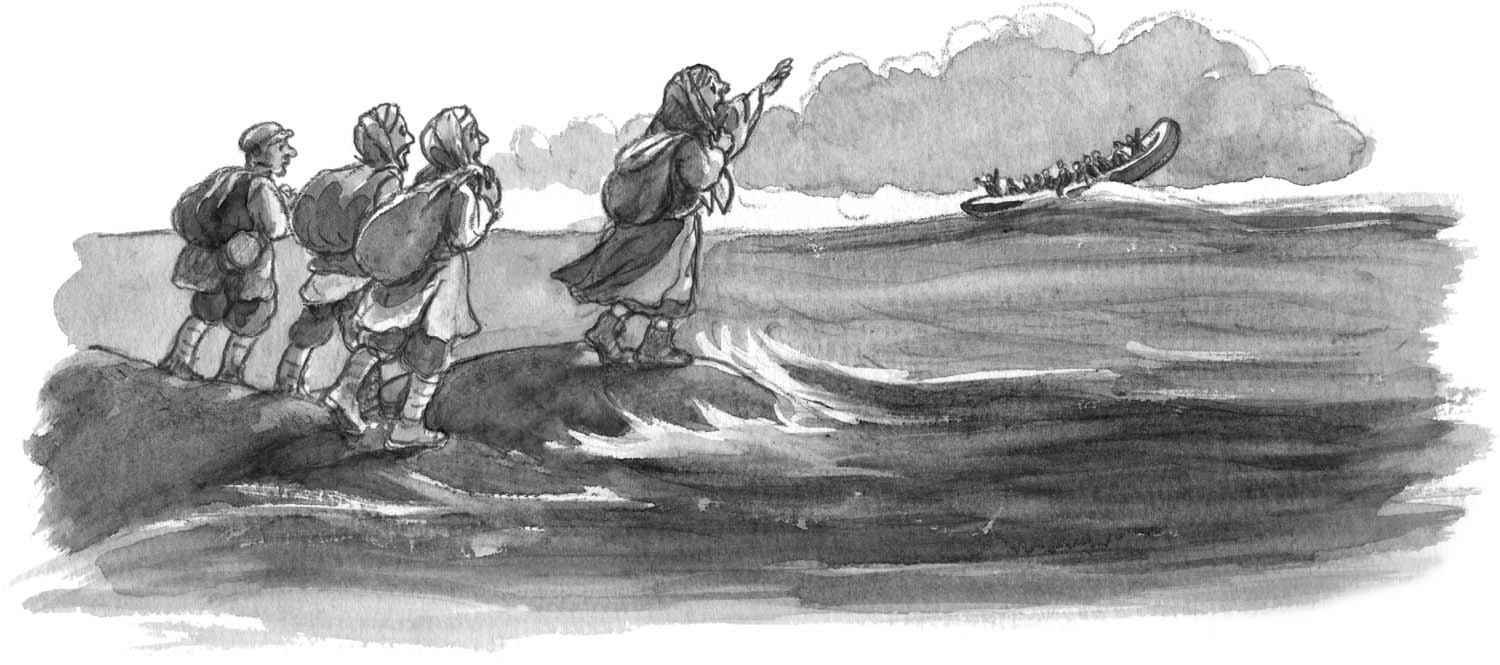
I was in a big rubber boat with an engine that coughed and spluttered. The boat was so full of people that it was difficult for all of us to find anywhere to sit down. To begin with the sea was calm about us, lapping but calm. People were telling one another that it wasn’t far, that it was a good boat, that we would soon be there, soon be safe.
I had seen the sea in photographs, on films, and it had always been blue. But this sea was not blue. It was grey, and wide, and darkening, and threatening, and seemed to go on forever into the distance, where it became sky, a sky that was as grey as the sea.
I do not know how many nights and days I spent on that boat. I found at last a place to sit on the side. There I passed the long cold hours, trying all the while to calm my fears. I made myself imagine Mevagissey, the place where I was going. I tried to think of Uncle Said in his café in England. I had never met him. I had seen his photograph, the one Mother kept with her all the time. I had spoken to him only once, a long time before, on Skype. But then he was pixelated, so I could not see him at all well. I could tell that he had a moustache, and not much else. I remember his voice quite well, though. He told me I should come to see him one day, and help him in his café.
‘I’m coming, Uncle Said!’ I shouted out loud. ‘Fore Street, Mevagissey! Fore Street, Mevagissey!’ Some people around me on that boat looked at me as if I had gone mad. But I didn’t mind what they thought. I was going to Mevagissey! Fore Street, Mevagissey!

Mevagissey, Fore Street, Mevagissey. I kept saying those words out loud to myself on the boat, so I should never forget them, but also because I wanted to practise them. I practised all the English words I knew, that the aid workers had taught me: Hello, son. Goal! Foul! Chocolate. High five! Manchester United. Chelsea. Goodbye. See you. Come back soon. And of course all the cricket words I knew, like: bowler, batsman, over, wicket, out, not out, four, six and owzat!
Owzat was my favourite word. It cheered me up every time I said it. I wanted to speak as many English words as I could before I arrived in England. I wanted to show off to Mother, when I saw her, how well I could speak English. And practising my English words kept my mind off the sea and the waves and the cold and sound of all the moaning and crying around me in the boat.
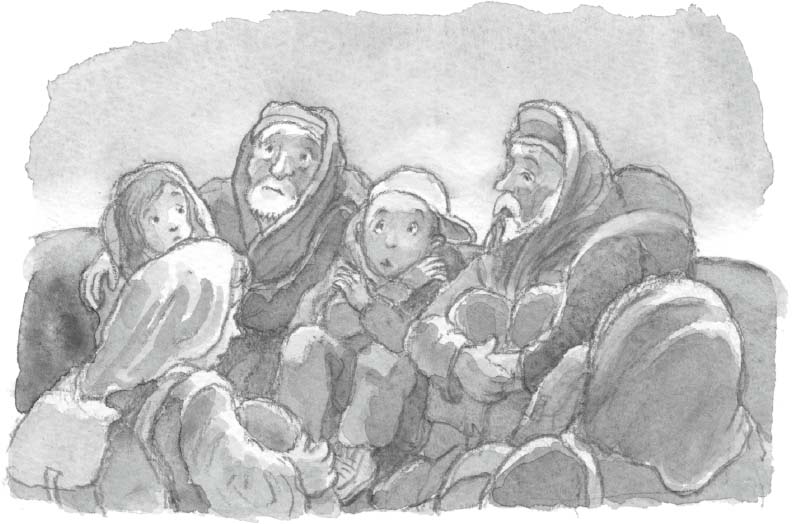
Hope kept me going too. I hoped everyone in England would be smiling as Mother had said they would be. I hoped we would be happy there, and safe. Just thinking about it made me happy. I would have a home again and go to school, have friends again, play cricket again. I tried only to think most about Uncle Said, and cricket, not of Mother, not of Father or Hanan. I knew that if I thought of Mother too much I would cry. And I would not cry. I wanted to be a man, like Father had been. I wanted to be brave as Hanan had been. Father had never cried. Hanan would not cry. So I would not cry.
Within a few days the last of any drinking water was gone. The engine had long since broken down. There were waves now that towered over us, and with them always a biting wind. Sitting up on the side was no longer safe. I sat huddled now with the others in the bottom of the boat. The cold shivered me, numbed my hands and feet. All around me there was crying and whimpering and praying. I could see – we all could see – that all the time the boat was lower and lower in the sea. With every wave, more seawater was coming over the side. Some of us cupped our hands and did our best to bail it out. But the water was filling the boat faster than we could get rid of it.
In the end we gave up. We were sitting in water, lying in it, many of us more dead than alive. Every one of us there realised by now that soon enough we would all be drowning in it. We knew that no help was going to come. The boat was filling up, and I could not swim. None of us could swim. They prayed to God. I prayed to God, and I tried to think of Mother and Uncle Said, of how wonderful it would be to live with them in Fore Street, Mevagissey. Fore Street, Mevagissey.
The great storm came at night, the waves tossing us, each of them trying harder than the one before to lift the boat up and flip us over. The sea was playing with the boat, playing with us, teasing us before it drowned us and swallowed us up forever. Too weak now, unable to hold on, all of us helpless, we were being thrown one by one out of the boat.
I knew my turn had to come soon. There was crying and screaming all about me. I had no hope left of ever seeing Mother again, no hope of seeing Uncle Said or Fore Street, Mevagissey.
Lying there in the water at the bottom of the boat, I remember reaching out for something, anything to cling on to, so that I would not be tossed out by the next big wave, when my hand found a piece of rope under the water. I grasped it, pulled and pulled at it. It was long, but at last it held firm. I managed to tie it around my waist, and I lay there, praying for Mother, praying for me.

In the end I was too cold and too exhausted to even pray. Darkness was closing around me. I knew I would never see morning. I did not care any more. I gave myself up to the darkness and the cold and thought only of Mother and Father and Hanan. I promised myself I would think of them till my last breath. That way we could all be together at the end.
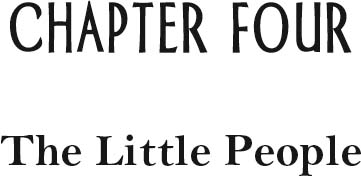
I must have fallen into sleep, because next thing I knew, I found myself waking up.
The storm had passed. There was the warmth of sunlight on my face, and I could hear a sound of chattering and whispering, like the murmuring of a flock of birds flying about me. But I could see no birds. I realised then that I was no longer lying in the boat at all, that the sea was no longer surging beneath me. I was on land, dry land. I could feel it under me. I tried to move my head, to discover where I was, but I could not move it. My arms would not move either, nor my legs. All I could move were my fingers. I clutched at the ground beneath them. It felt as if I was clawing at sand. I must be on a beach somewhere. But I had no idea where I was. I did not care. I was alive! I had survived.
I discovered I could wriggle my toes. But try as I did, I could not find the strength even to lift my head to see them. I could swivel my eyes, but my neck I could not move however hard I tried. I was overwhelmed by terror, and I was shivering uncontrollably, yet I did not feel cold. I did not feel anything. This was what the beginning of dying was like, I thought.
In my panic, I cried out, calling for help, louder and louder, until my throat ached with it. Hearing myself at least lifted my spirits. If my voice worked and my throat ached, then that must be good. I was still alive. There was hope. But I knew I needed help. I could hear the waves tumbling on to the sand not too far away, they were rushing up towards me, every wave coming closer. I feared the worst. Sooner or later the sea would reach me, and then cover me. I had to find a way to move or I would drown. I shouted for help again, and again. But no one came.
I did hear that strange whispering again, and a chirruping and a chattering like a flock of thousands of birds gathering to roost at sunset. It was a sound that reminded me of evenings at home when we were out playing cricket in the last of the daylight. My hearing worked, and my memory worked. I could see the sun, and the sky. My seeing worked too. And there was more feeling now in my legs and feet. Every new sign of life in me gave me hope.
I felt something tickling my toe, then crawling up my leg. An insect, I thought, a scorpion maybe and it might sting me. But I didn’t mind. I could feel it. I could feel it.
I heard that whispering sound again. It wasn’t bird noise after all, but voices, small voices. I thought at first in my muddled head that these might be scorpions talking. I tried again to lift my head to see, and still could not move it. Then I was drifting away, down into a deep sleep. It was a comfortable sleep, a warm sleep. There was no more shivering. If this was dying then I did not mind a bit, not any more.


